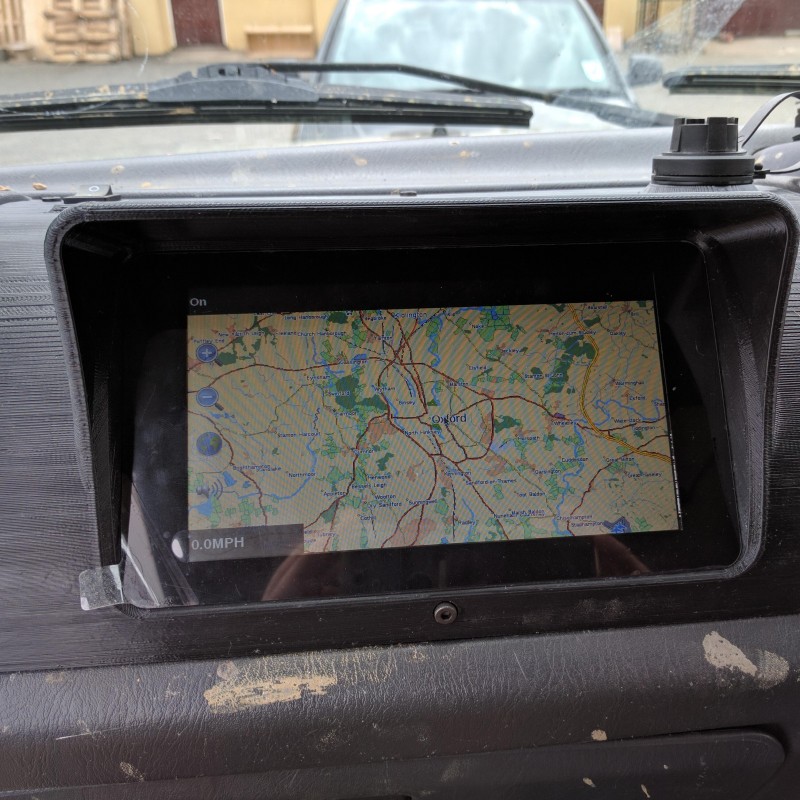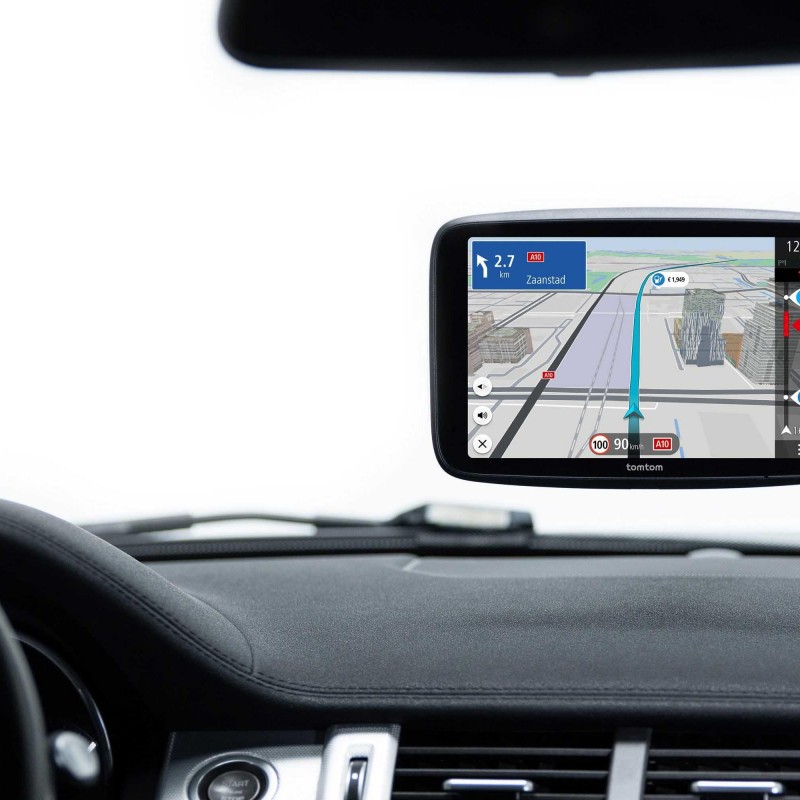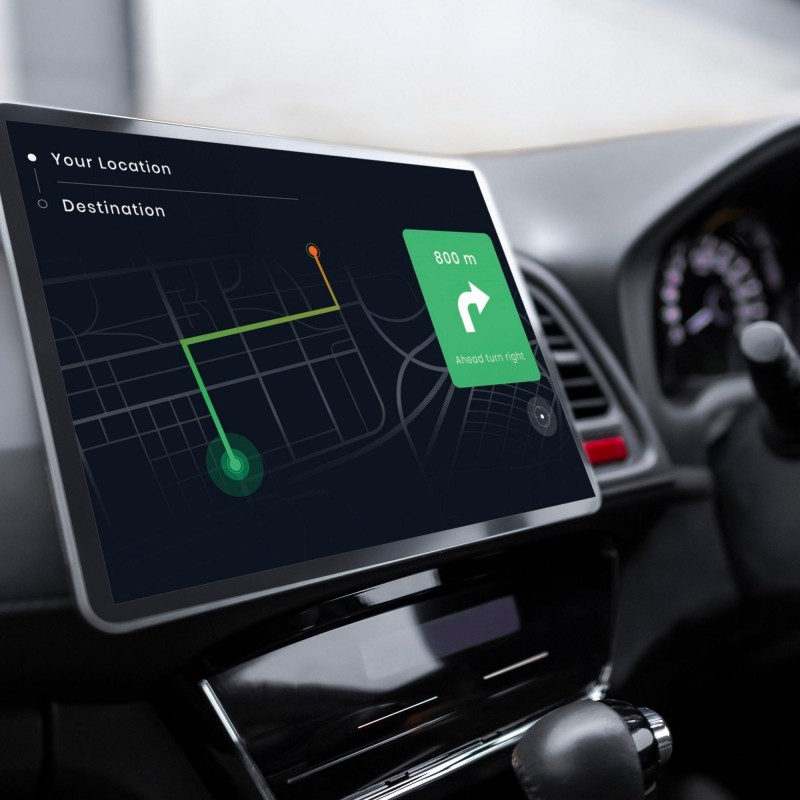In the age of technology, smart car GPS navigation systems have moved from being simply a luxury feature to becoming an essential part of the driving experience. Gone are the days when drivers relied on printed maps or basic navigation tools. Now, with the integration of sophisticated GPS systems, drivers not only find their way easily but also enjoy a plethora of features that enhance their journey. Smart car GPS navigation systems offer real-time traffic updates, route optimization, personalized recommendations, and voice-guided directions, significantly transforming how we approach driving. These systems contribute to safer and more efficient travel while allowing for a more enjoyable road trip experience.
This comprehensive guide delves into everything you need to know about smart car GPS navigation systems, including their functionalities, advantages over traditional systems, the technology behind them, how they compare with smartphone navigation applications, and future trends. Whether you are a tech-savvy driver or someone who is looking to upgrade your vehicle’s navigation system, you will find valuable insights and practical information to help you make an informed decision.

Smart car GPS navigation systems operate using satellite technology to pinpoint a vehicle’s location and provide real-time navigation insights. A combination of software, hardware, and connectivity features allows these systems to guide drivers on their journeys effectively. Below are the foundational components of a smart car GPS navigation system:
GPS Technology
At the heart of any GPS navigation system is Global Positioning System (GPS) technology. This system utilizes a network of satellites orbiting the Earth to calculate the precise location of a vehicle. By triangulating signals from at least three satellites, a GPS receiver in the car can determine its latitude, longitude, and altitude. This calculation is instantaneous and does not require any cell signal, making GPS a reliable navigation tool everywhere.
User Interface
The user interface (UI) of a smart car GPS system involves touchscreens, voice commands, and remote buttons that allow the driver and passengers to interact with the navigation system. A user-friendly interface enables users to enter destinations, view maps, and customize route settings easily. Many smart systems also feature advanced graphics and animated maps for improved visibility and understanding.
Mapping Software
The mapping software is essential for a smart car GPS navigation system. This software contains detailed maps, points of interest (POIs), and various features that enhance navigation. Regular software updates ensure that users have access to the most current road layouts, traffic patterns, and construction information, improving overall navigation efficiency.
Connectivity Features
Today’s smart car GPS navigation systems often come with connectivity features such as Bluetooth, Wi-Fi, and smartphone integration. These features allow users to sync their devices with their car, enabling them to receive real-time updates and access additional apps for an enriched driving experience. Integration with mobile applications can provide traffic data, weather conditions, and alternative route suggestions based on current travel patterns.
Smart car GPS navigation systems come equipped with numerous features that distinguish them from traditional navigation tools. Understanding these features helps potential buyers choose a system that meets their needs.
Real-Time Traffic Updates
One of the most significant advantages of smart car GPS navigation systems is their ability to provide real-time traffic updates. By leveraging data from various sources, such as traffic sensors and user reports, these systems can inform drivers of traffic jams, accidents, and road closures along their route. This feature allows for the automatic adjustment of routes, helping drivers save time and avoid frustrating delays.
Voice-Guided Direction
Voice-guided navigation is a hallmark of modern GPS systems. Smart car GPS units provide clear audio instructions, allowing drivers to keep their focus on the road. Voice commands can often even be used to input destinations, making the overall experience safer and more efficient. With hands-free operation, drivers can keep both hands on the wheel while navigating.
Points of Interest (POI)
Smart car GPS navigation systems frequently include an extensive database of points of interest (POIs) along a driver’s route. These may include restaurants, gas stations, ATMs, hotels, and attractions. Users can search for these locations through their GPS interface, potentially discovering new opportunities to explore during their journey.
Lane Guidance and 3D Mapping
Advanced smart navigation systems provide lane guidance to help drivers make informed decisions at complex intersections and highway merges. 3D mapping provides a visual representation of the surroundings, making it easier to identify landmarks and navigate unfamiliar terrains confidently. These features enhance clarity and user understanding, reducing the likelihood of wrong turns.
Route Customization
Smart car GPS navigation systems often allow users to customize their routes based on preferences. Drivers can choose options such as avoiding tolls, taking scenic routes, or prioritizing highways over local roads. This level of customization ensures that drivers have control over their travel experience and can tailor their routes to fit their individual needs.
Integration with Smart Devices
Modern connectivity ensures that smart car GPS navigation systems integrate seamlessly with smartphones. This integration allows users to receive notifications, make calls, and access their favorite applications while on the go. Enhanced connectivity can also lead to features like hands-free texting and music streaming directly through the car’s audio system.
Adopting smart car GPS navigation systems comes with numerous advantages. Exploring these benefits can help potential buyers understand why upgrading to a smart system could be worth the investment.
Improved Safety
Safety is one of the primary benefits. Voice-guided directions and hands-free operation minimize distractions, allowing drivers to focus more on the road. Advanced features like lane guidance can help prevent accidents by providing clear instructions on how to navigate busy intersections and highways.
Enhanced Convenience
Smart car GPS navigation systems offer unparalleled convenience. With real-time updates, access to points of interest, and route customization, drivers can easily adapt their journeys to changing circumstances. The ability to quickly find nearby gas stations or restaurants is especially helpful during long trips.

Increased Efficiency
These systems can greatly increase route efficiency by providing alternative solutions to potential traffic problems. Avoiding delays not only saves time but can also save on fuel costs. Ultimately, drivers can enjoy a more efficient and cost-effective travel experience.
Cost Savings
While the initial investment in smart car GPS navigation system may seem substantial, the long-term savings can be significant. By preventing fuel wastage through better route planning and minimizing wear and tear on a vehicle, these systems can contribute to reduced overall vehicle expenses over time.
Discover New Locations
Smart car GPS navigation systems help users discover new areas and attractions. Whether for work or leisure, these systems can suggest interesting detours and local gems, enhancing the journey and potentially leading to memorable experiences along the way.
While both smart car GPS navigation systems and smartphone navigation apps serve the same purpose—that is, guiding drivers to their destinations—they exhibit key differences. Understanding these differences can help buyers make informed choices about which solution best fits their needs.
Dedicated Hardware vs. Smartphone Apps
Smart car GPS navigation system are typically stand-alone devices specifically designed for in-car use. They often feature larger screens and specialized hardware that enhances visibility and usability while driving. Conversely, smartphone apps rely on the phone’s hardware, which may lead to smaller screens and less intuitive use during travel.
Software Integration
Smart car GPS navigation systems often have more advanced and optimized software tailored to vehicle navigation. They come with pre-loaded maps, accurate routing algorithms, and user interfaces designed specifically for ease of use while driving. Smartphone apps, while convenient, may not offer the same level of optimization, particularly in terms of the user interface while on the move.
Update Frequency
Many smart car GPS navigation system require periodic updates through proprietary software or by connecting to a computer. Smartphone apps, however, are often updated frequently and automatically through their respective app stores. This means that mobile applications may provide more current data without the need for manual updates.
Connectivity
Smartphone apps leverage mobile data and Wi-Fi for real-time updates and features. However, smart car GPS navigation system can utilize built-in GPS technology without relying on network connectivity. In areas with poor cellular reception, a dedicated GPS unit may continue to function correctly, ensuring that drivers maintain access to navigation services.
Costs
Smart car GPS navigation system often involve a more significant upfront investment for the hardware, along with potential costs for map updates. Smartphone navigation apps can be less expensive to use, with some offering free services, although data usage and reliability can be considerations.
As technology continues to evolve, so do smart car GPS navigation systems. An exploration of the advanced technologies shaping the future of navigation can shed light on what to expect in years to come.
Artificial Intelligence (AI)
AI technology is increasingly being integrated into smart car GPS navigation systems. AI algorithms analyze driving patterns, preferences, and traffic data to create more personalized routes. These intelligent systems can predict and suggest routes that consider a driver’s history and preferences for a tailored experience.
Augmented Reality (AR)
Augmented reality is gaining traction in the field of GPS navigation. Some cutting-edge systems employ AR technology to overlay navigation instructions directly onto real-world views through the vehicle’s display. This feature can enhance visibility and understanding while reducing confusion at complex intersections.
3D Mapping and Visualization
The evolution of 3D mapping technology allows drivers to navigate more effectively in unfamiliar environments. Advanced mapping systems display elevation changes, landmarks, and road types in vivid detail, providing better situational awareness.
Vehicle-to-Everything (V2X) Communication
Future smart car GPS navigation systems may utilize vehicle-to-everything communication to enhance safety and efficiency. V2X technology allows vehicles to communicate with infrastructure, such as traffic lights or road signs, to receive real-time information about traffic conditions, construction, accidents, and more.
Integration with Autonomous Technology
Smart car GPS navigation systems are also likely to play a crucial role in the development of autonomous vehicles. These systems will be crucial for understanding the environment and making informed driving decisions, ensuring the safe operation of self-driving cars.
Maintaining your smart car GPS navigation system is essential to ensure reliable performance and longevity. Below are several tips and practices to help you keep your navigation system in top condition:
Regularly Update Software and Maps
To ensure you have the latest features and maps, make it a priority to update your system regularly. Check for software updates frequently, as manufacturers release improvements and corrections over time. Keeping your maps current allows you to navigate accurately and efficiently.
Clean the Screen
Over time, the screen on your GPS system can accumulate dust, fingerprints, and smudges. To maintain visibility, periodically clean the screen with a microfiber cloth and appropriate cleaning solution. Avoid using abrasive materials or harsh chemicals, as these can damage the screen.
Protect from Extreme Temperatures
Excessive heat or cold can negatively impact the performance of electronic devices, including GPS systems. If you park your vehicle in extreme temperatures, consider removing the device or covering it to protect it.
Ensure Proper Installation
If your smart car GPS navigation system requires professional installation, having it correctly installed is crucial. An improper installation can lead to malfunctions, reduced functionality, and even safety risks. Follow the manufacturer’s guidelines for proper installation.
Utilize Customer Support
If issues arise with your smart car GPS navigation system, don’t hesitate to reach out to customer support or consult the user manual for troubleshooting tips. Many manufacturers offer window customer service to assist with software issues, updates, or hardware malfunctions.

Conclusion
Smart car GPS navigation systems have become integral to the driving experience, transforming how we navigate and interact with our surroundings. Their array of features, including real-time traffic updates, voice-guided instructions, and seamless integration with smart devices, enhances convenience and safety on the road. By understanding the various components and functionalities of these systems, as well as comparing them to smartphone navigation apps, you can make informed decisions tailored to your needs.
The technological advancements shaping the future of smart car GPS navigation systems are impressive, hinting at a promising evolution that will integrate innovations such as AI, augmented reality, and V2X communication. Engaging with these technologies today can pave the way for a more advanced driving experience tomorrow.
Whether you are a weekend road-tripper or a daily commuter, investing in a quality smart car GPS navigation system can significantly improve your travel experience. As technology progresses, staying informed helps ensure you are equipped with the best tools for navigating the open road.